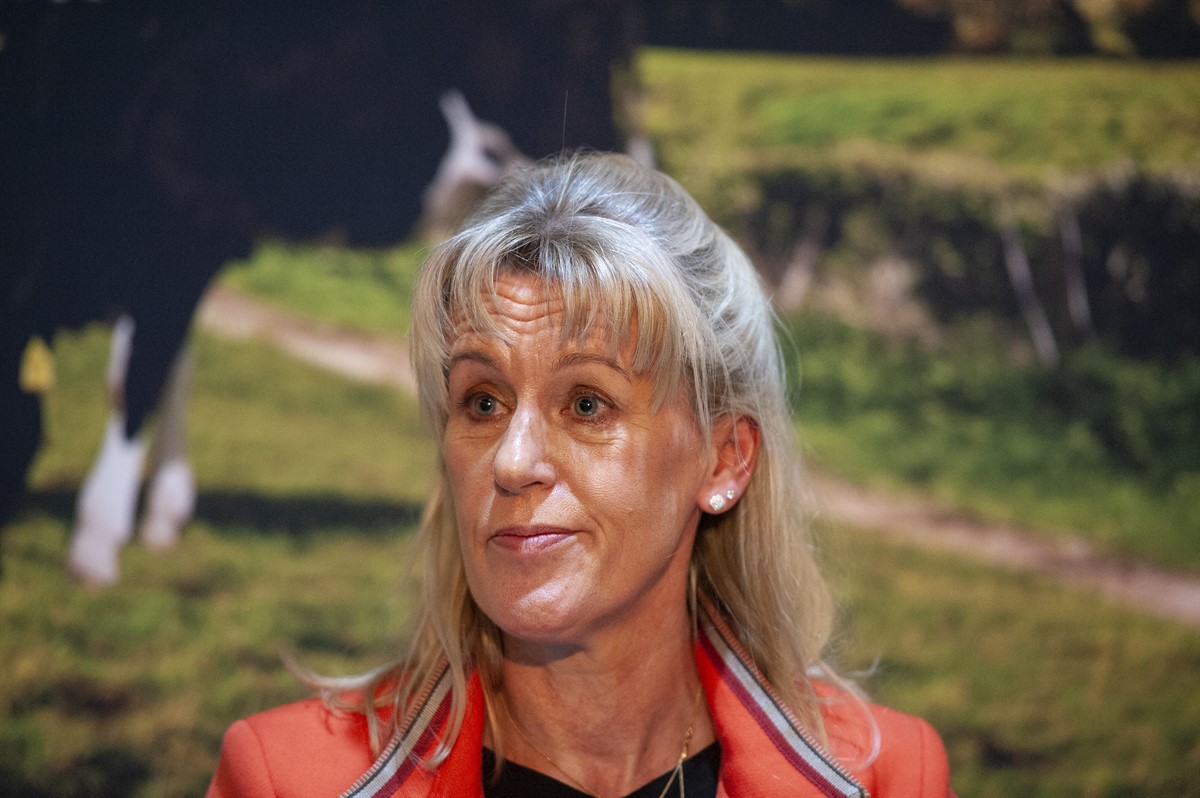Trade with Mexico – what it means for British farmers
31 August 2022

As the UK opens negotiations on a new FTA (free trade agreement) with Mexico. We look at the export opportunities and areas of concern for British farmers.
31 August 2022
Cause for optimism for British food and drink exports
Whilst the TCA has helped foster a fruitful trading relationship between the UK and Mexico worth close to £4 billion a year, the scope of the agreement with regards to facilitating agricultural exports is limited – offering tariff free access for just 62% of traded agricultural products.
As such, agricultural trade is modest. But as the government looks to upgrade its trade partnership with Mexico, the NFU is optimistic about the role that British food and drink exports can play.
Why Mexico?
Mexico is the 15th largest economy in the world with a rapidly expanding middle class and net grocery spend equivalent to its North American neighbours.
Mexican consumer preference for quality, tasty food with robust food safety credentials highlights the scope of the opportunity for UK agri-foods produced to the highest standards and by the most environmentally sustainable means.
Mexico is also a founding member of the Comprehensive and Progressive Agreement for Trans-Pacific Partnership, or CPTPP, an 11 member trading bloc accounting for 13.3% of world GDP. The UK government sees joining the CPTPP as key to fulfilling its global free trade ambitions and hopes that acquiring bilateral FTAs with its largest members will simplify its progress towards membership.
What is the NFU doing?
Since submitting its response to the Government’s consultation on trade with Mexico last year, the NFU has taken an active role in lobbying Defra and DIT representatives to ensure that the best interests of British farmers and growers are recognised within the upcoming FTA.
This has involved pressing negotiators to address the breadth of tariff and non-tariff barriers inhibiting greater UK agri-exports to Mexico whilst defending the necessity for market protections for some of British farming’s most sensitive sectors.
Opportunities for British producers
The NFU is clear that FTA negotiations must look to remove the high tariffs applied to UK agri-food imports into Mexico, particularly across meat and dairy. Simultaneous efforts must be made to gain market access approval for British pork offal, beef, and poultry meat into Mexico.
Pork
Mexico is the 6th largest consumer of pork in the OECD. Fuelled by its affordability, pork demand continues to vastly outstrip domestic supply and imports rose 138% between 2003 and 2017. Imports in 2021 valued almost $2 billion.
Beef
Opportunities for beef continue to expand both for prime cuts into hotels and the hospitality sector and for offal and fifth quarter products into further processing and retail. Growing awareness of the health benefits of grass-fed beef are appealing to ever more health-conscious Mexican consumers.
Poultry
Mexico is the 7th largest global consumer of poultry meat. Opportunities exist for dark poultry meat in particular, supported by demand for cheaper animal proteins and the rising popularity of diversified products such as fast-food fried chicken.
Dairy
Opportunities for dairy exist in both commodity goods such as milk powders, the import of which Mexico is reliant upon to meet its government’s national milk consumption targets, and, as the middle class continues to grow, premium products such as specialist cheeses.
The FTA should secure protections for our catalogue of successful, highly recognisable Geographical Indications like West Country Cheddar and Derbyshire Stilton, which are proven to increase export returns to producers.
Cause for concern?
The NFU has been clear from the outset that all new FTAs must safeguard our exemplary domestic agricultural standards and avoid undermining British farmers and growers.
It trusts that the same level of care will be taken with regards to a prospective UK-Mexico FTA to ensure that food produced to standards that would be illegal for our farmers to produce to here in the UK, such as battery caged hen eggs and hormone treated beef, continues to face stiff tariffs to enter into the UK market, or remains banned.
It is also calling on negotiators to retain seasonal quota protections for domestically produced fruit and vegetables during the short British season and high tariffs on Mexican cane sugar to avoid detrimental effects to the value of British sugar.
We continue to support bilateral safeguard clauses in all our FTAs which allow for bilateral targeted action when either price or volume is disproportionately affected by an increase in imports.
Next steps
With round 2 of trade talks scheduled to take place in Mexico in September, the NFU will continue to engage closely with Defra and DIT trade representatives to ensure that the interests of British farming remain prominent in negotiations.
We continue to welcome input from members regarding their experiences of doing business in Mexico to feed into our discussions with Government.
Please email: [email protected]
30 May 2022
NFU President Minette Batters comments

“While our existing agri-food trade with Mexico is modest, there are significant opportunities for British farmers to export more quality produce. For example, we know that there is demand for British dairy and meat, notably pork. However, the government must remain aware that Mexico is a significant agricultural exporter which will want to increase its access to the prized UK market. Safeguards are needed for sensitive sectors, such as horticulture, beef, eggs, and sugar in this case.”
27 May 2022
Negotiations begin
The UK and Mexico have now opened negotiations towards a new FTA (free trade agreement). This will replace the existing post-Brexit 'rollover' trade agreement that we inherited from our time as members of the EU.
Existing EU-Mexico agreement – limitations
While 97% of UK exports are already eligible for tariff-free entry into Mexico under the existing agreement, the vast majority of UK food products continue to face prohibitive tariffs. In spite of this, UK food and drink exports to Mexico were worth an average of over £136m from 2019 to 2021.
While we prepared for Brexit, the EU and Mexico were busy upgrading the terms of their trade agreement, with the EU securing better access in principle into the Mexican market for European food and drinks in 2018. However, the agreement hasn’t been implemented yet due to political issues. There is therefore a high degree of expectation on UK negotiators that we too can build on the current terms of trade and secure enhanced access to the Mexican agri-food market.
Opportunities for British producers
The negotiation of enhanced tariff-free access for UK agri-products can offer opportunities to increase exports of high-quality British food and drink to Mexico. Notably, we feel that negotiators can do more to secure enhanced access to the Mexican market for dairy products and pork.
Negotiations should also incorporate agreements on animal and plant health certification. Such restrictions currently inhibit the potentially lucrative export of British beef and lamb, along with certain cuts of pork.
Sensitive sectors – caution required
Mexico is a huge agricultural exporter. Significant investment in Mexican agricultural infrastructure has meant that it has exported more food than it has imported since 2015.
Any agreement must maintain safeguards for sensitive sectors with the potential to be disrupted or undermined by Mexican imports. These include beef, sugar, eggs and horticulture products during their respective British seasons.
CPTPP membership
Mexico is a member of the 11-country trading bloc, the CPTPP (Comprehensive and Progressive Agreement for Trans-Pacific Partnership). The UK is simultaneously seeking to join the CPTPP.
It is unclear whether a bilateral trade deal will be struck first between the UK and Mexico, or whether the UK will accede to the CPTPP before these bilateral negotiations conclude. In either case, we believe it’s crucial to ensure that the UK doesn’t have to pay twice in terms of granting preferential market access through both negotiations. The same applies to the UK's negotiations with Canada.
21 June 2021
Trade with Mexico: call for input
Consultation on trade with Mexico
We submitted evidence to the DIT (Department for International Trade) on trade relations with Mexico in June 2021 ahead of the talks beginning.
Existing trade agreements between the EU and Canada and Mexico were initially ‘rolled over’ to ensure trade could continue post-Brexit. The consultation looked at these existing FTAs, as well as opportunities to improve trade in future negotiations.
In our response, we highlighted the lack of sufficient EHCs (Export Health Certificates) for pig meat, including fifth-quarter cuts, and called for greater access for these products into this market. Since then DIT announced the opening of the Mexican market for pork exports.
We also called for greater market access opportunities for British dairy, fruit and vegetables, poultry meat and organic goods into Mexico. There is concern, however, about the potential for greater market access being given to Mexican exports of beef, eggs, sugar and horticultural goods into the UK.
Download and read our full response: NFU response on trade with Mexico June 2021
Ask us a question about this page
Once you have submitted your query someone from NFU CallFirst will contact you. If needed, your query will then be passed to the appropriate NFU policy team.